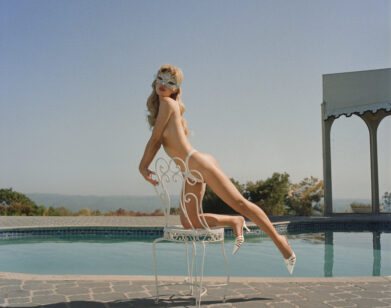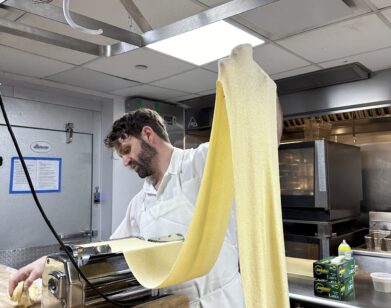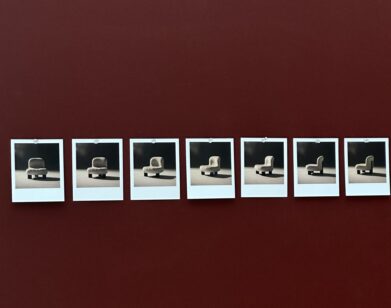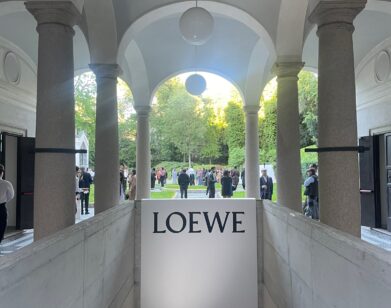Hilary Roe on the Bard of Verona
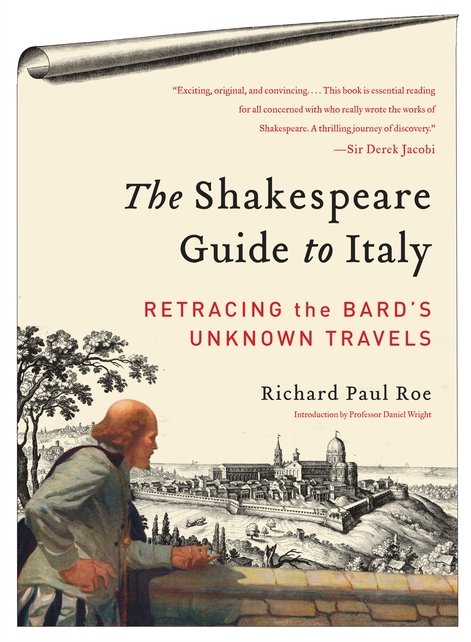
To be or not to be; a rose by any other name; wherefore art thou? Shakespeare’s language is part of our collective consciousness perhaps more than any other writer. Yet, exactly who Shakespeare was has remained a controversial topic, now explored by Richard Paul Roe in his book The Shakespeare Guide to Italy: Retracing the Bard’s Unknown Travels (Harper Perennial). Based on his study of Elizabethan history, Shakespeare’s plays, and an intimate knowledge of Italy’s terrain gleaned from his months spent there during World War II, Roe puts forth the thesis that whoever wrote classics like Romeo and Juliet had to have seen Verona with their own eyes. After retiring from a lawyer’s life, this passionate belief led Roe to return again and again to the Italian landscape, traveling through the country—iambic pentameter in hand—to investigate the identity of his revered playwright.
Though Richard Paul Roe passed away in 2010, in a Shakespearean twist, his daughter Hilary Roe Metternich, a Greek and Roman scholar, helped him publish it posthumously. We spoke with Hilary about her father’s own complex persona, from studying chemistry to flying bombers over Naples to cracking Shakespeare, why he had his doubts, and how he set out to prove them.
ROYAL YOUNG: I’d love to just talk a little first about your background, and what it was like growing up with him.
HILARY ROE METTERNICH: My father was born in Los Angeles, as was my mother, so we are kind of “old Californians,” but not WASPy Californians with land grants or anything like that. We’re self-made people. My father went to Berkeley when he was 16 years old to study chemistry before World War II. His father was an engineer and his older brothers were engineers, but my father hated it. He realized perhaps that wasn’t his path and changed over to history and humanities, at which he excelled. He just fell in love with the whole Elizabethan period. Then he went off to fly B-17 Bombers in the European Theatre and came back a very mature, grounded guy. He went on the G.I. Bill to the Southwestern University of Law. In his life as a lawyer, all his Elizabethan, Renaissance, and Medieval history was put on the back burner while he married the love of his life, my mother, and they had five children.
YOUNG: So where do you fall?
METTERNICH: I am the third daughter and fourth child, all the way at the end. I was in no man’s land. But that was also a rather liberating position, because I could go off and do whatever I wanted. Dad had a very successful career, and then when he decided that was enough of being a lawyer, he closed his law firm. He was young enough and had a little bit of means to pursue his interest. He and my mother loved to travel to Italy and got very involved with Shakespeare.
YOUNG: So when did you see that resurgence of his love for Shakespeare?
METTERNICH: He had always felt, how could this be true that Italy was made up at a writing desk in England? He just was very uncomfortable with that. During the war, my father had been grounded in Italy and he said reading these plays as an older person, he thought, “This sounds too much to me like Italy and I’m going to go check out one thing. I’m going to look for sycamore trees in Verona. If I can find them, I have my work cut out for me.”
YOUNG: Did he know Italy well because of the war, or was that a knowledge he cultivated?
METTERNICH: Yes, he was grounded in Italy for three weeks during the war. I believe there was a large American base in Naples, and because my father was captain of his plane and they said he came down too fast, sort of like the bends in divers, he had a lot of leisure time to poke and travel around. He carried that with him.
YOUNG: Had he also read Shakespeare while he was in Italy during the war?
METTERNICH: Why, yes, he told me that at those rest and recreation places run by U.S.I.S. where the service men could relax, he said in there, lo and behold, were all the little individual Shakespeare plays. So later, I think he had to revisit all that. And between you and me, I’ve given some thought as to why my father would have been so gutsy to embark on something like this. I think by his experiencing having polio and a couple other life experiences, he always questioned how something looks and what it really is. Appearance and then reality.
YOUNG: Interestingly, that’s a very scientific way to look at things.
METTERNICH: Yes, and I think that, as well as he carried this spirit of fighting through something coupled with this issue of appearance versus reality. That’s why he focused on this old love, as we sort of all do in our lives. I studied Roman and Greek history in college. I’m going to go back and do that now.
YOUNG: Did you ever go to Italy with your parents?
METTERNICH: No, I never did. Nobody in the family was involved in my father’s study of Shakespeare. My father and mother would travel to Italy for pleasure, and then Dad would sneak off to do research. This was Dad’s baby. It was only at the very end, maybe five years ago, when my own husband retired, we decided we would have a home in Pasadena, where my elderly parents lived. Then I could see my father getting older and frailer and he just couldn’t go over that last hump. That’s when I stepped in. I was this sassy younger daughter, watching my father shrink and I could say, “Dad, now your book is done. What plans do you have for it? If you want it to be published, you’re going to have to let go.” I was just happy that I could help him see it between two covers before his death. It was a very sad thing for him to think that nothing would happen to this.
YOUNG: Where do you stand on the Shakespeare author controversy?
METTERNICH: [laughs] Well, of course, I am going to agree with my father. The person who wrote these plays had to have seen Italy with their own eyes. Now you’ve got some facts on the ground, that are going to create a little bit of trouble out there in Shakespeare land.
YOUNG: Why do you think we remain so fascinated with Shakespeare and not only who he was, but everything he’s written?
METTERNICH: These plays, along with the King James version of the Bible, are the English that we all speak, know and love today. The fact we can sit in a theater and listen to a language written hundreds of years ago and pretty much understand it, we all share in that. And these stories are fun and full of wisdom.
YOUNG: And I also think they’re blockbuster Hollywood in a strange way, in the sense that Shakespeare deals with big, universal themes like immortal love in Romeo and Juliet, revenge in Hamlet, tragedy in King Lear. Massive things we can all relate to.
METTERNICH: Exactly. Combined with very nuanced characters that are in no way cardboard cutouts. These themes will never die and will be constantly reinterpreted in all kinds of art forms.
YOUNG: Are you going to go see Anonymous?
METTERNICH: I went to go see Anonymous already, are you kidding?
YOUNG: [laughs] What did you think?
METTERNICH: I thought it was beautifully crafted. Roland Emmerich is addressing a subject that is going to make a lot of people upset. There again, as my dad said, “You’re entitled to your own opinion, but not your own facts.”
THE SHAKESPEARE GUIDE TO ITALY IS OUT TODAY.

